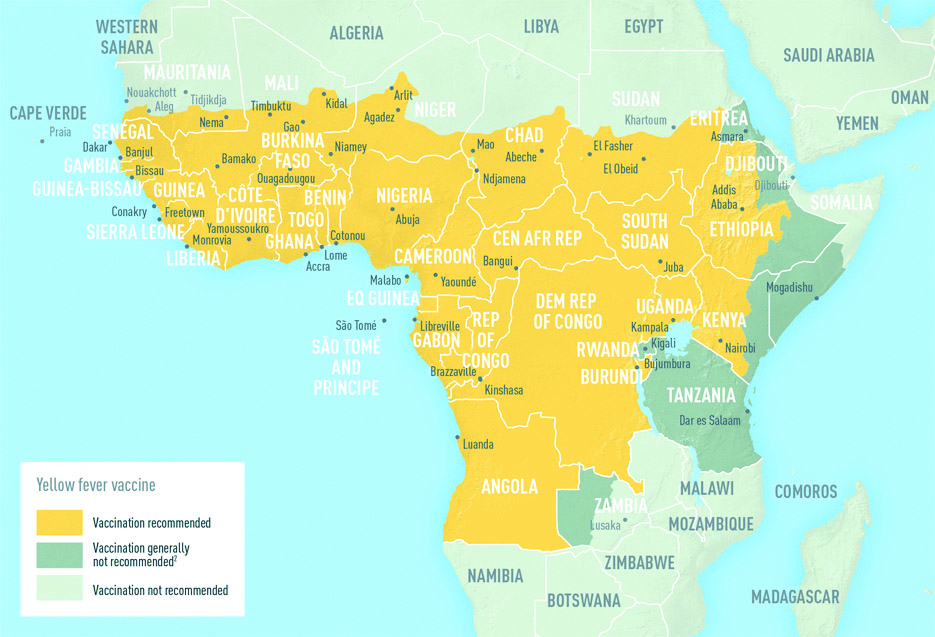
Anyone aged nine months and older living in or traveling to areas with a risk of transmission should receive the vaccine, which is almost 100% effective in preventing infection from an infected mosquito. Some countries make the vaccine a mandatory requirement for entry, so it is essential to get vaccinated if you plan to travel to those destinations.
Everyone who is living in or traveling to areas where yellow fever is a possibility should receive the vaccine, regardless of their age, according to the recommendation. Moreover, under the International Health Regulations, some countries actually require proof of yellow fever vaccination as a condition of entry.
The vaccine offers protection for at least ten years with a single dose, and there is a possibility that it may provide life-long immunity. However, to ensure continued protection and meet international entry requirements, booster shots should be considered every ten years for travelers.
Receiving a yellow fever vaccine typically causes few, if any, side effects. However, some patients may experience a fever, headache, or muscle aches in the two weeks following the vaccination. Although rare, encephalitis has developed in very young infants after receiving the vaccine.
* Infants younger than 4 months of age.
* Someone who has had the cholera vaccine within the previous three weeks.
* Immunocompromised persons, including people with HIV, AIDS, leukemia, lymphoma, generalized malignancy.
* Pregnant women should not be vaccinated unless traveling to or residing in high-risk areas.
